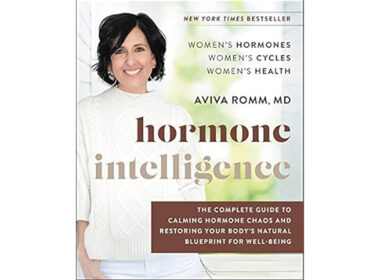There’s a common trend of sharing women sharing their “birth story” on blog or social media accounts, and I have several friends who really enjoy reading these accounts. While birth stories can be fun to read, for some, they can set up the unhealthy expectation that every birth has to be complication-free, medication-free, or have a neatly wrapped up resolution at the end. But, in reality, not everyone’s birth experience goes as planned.
For some women, their birth experience may have been very different from what they expected, and possibly a jarringly negative experience. Many women don’t often talk about it outside of their trusted support network, but experiencing a traumatic birth is more common than you might think.
Shortly after graduate school, a friend asked me if I could refer her to a therapist to help her process her difficult birth experience. She was struggling to process feeling betrayed by her midwife and care team who heavily pressured her into having a C-section instead of following her birth plan. Fortunately, she found a wonderful therapist who helped her process and heal from the emotional effects of her traumatic birth experience. Since then, in my work as a psychotherapist, I’ve worked with many women who are seeking healing from a mental health perspective following birth trauma.
Birth trauma is real trauma
My friend isn’t alone. Researchers estimate that about 30% of women experience some form of trauma symptoms following their birth experience. Additionally, researchers have found that anywhere from 4% to 9% of women develop Post-traumatic Stress Disorder (PTSD) after giving birth.
Factors that may contribute to a birth experience being traumatic, according to the American Psychological Association, include prolapsed cord, unplanned C-section, using forceps or vacuum extractor, the baby needing to go to the NICU, a lack of support from medical team during labor and delivery, feeling powerless during labor and delivery, a history of trauma, and experiencing medical complications.
It is important to emphasize that every woman’s experience is unique and what might be traumatic for one woman may not be for another. If you perceived your birth experience to be traumatic, your experience is real and valid no matter what you were told when you were giving birth.
Giving birth is an intense experience, particularly for first-time mothers who often have no idea what to expect. Unfortunately, for some women, it is common to create a birth plan and discuss it with your medical providers only to have something come up during labor that necessitates changing the birth plan or feeling like your wishes aren’t being honored by your medical team. Women have shared stories of being pressured to choose to have a C-section sooner than they wanted to because their provider seemed to be in a hurry, stories of unanticipated medical challenges that they felt ill-equipped to handle, and stories of feeling unheard or dismissed when trying to assert their needs.
If you feel like aspects of your pregnancy, labor, delivery, or postpartum experience were challenging, traumatic, or just don’t sit well with you, there are steps you can take to help you process and heal from any effects of trauma, and even to prepare for a next birth with reduced feelings of dread.
Own your birth story
One powerful step you can take in processing and healing from a traumatic birth experience is to let go of any misguided assumptions that there is only one way to give birth that is “right” or “best.” I would encourage you to let go of any expectations of what the “best” birth experience looks like and embrace that you did the best you could in your given situation, and with all of the complications or unexpected factors you faced. Try to give yourself grace and affirm that your experience and emotions surrounding the experience are real and matter.
If you felt like your experience wasn’t what you expected, that’s valid. If you felt like your medical team didn’t honor informed consent or talked down to you, that’s valid. If you wished the experience went differently, that’s valid. Accepting your experience can help move you more effectively through processing your experience. On the other hand, blaming yourself or guilting yourself doesn’t do any good and can slow your healing.
An important part of processing any traumatic experience is sharing your story with your trusted support network. If you are experiencing uncomfortable emotions surrounding your birth experience or are feeling guilty for not having an “ideal” birth experience, it can be tempting to isolate yourself or minimize your story and experience. However, this only serves to increase feelings of helplessness or isolation.
Sharing your experience with others whom you trust can give you the opportunity to process the experience and receive emotional support from others. Research shows that spending time with your support network when under stress can actually reduce the effects of stress. Give it a try!
Consider enlisting the help of a professional to overcome a traumatic birth experience
It can also be beneficial to seek out the help of a professional to guide you through processing and healing. Two professionals you might want to consider are a licensed psychotherapist (counselor) and a doula. Therapy can provide a safe and contained environment for you to process what happened and identify the best way to move forward. A therapist can help you spot any faulty thinking patterns at play and make a plan for how you might want to handle any future birth experiences.
A doula is a “trained professional who provides continuous physical, emotional, and informational support to a mother before, during, and shortly after childbirth to help her achieve the healthiest, most satisfying experience possible.” Mary Rose Somarriba shared in a Natural Womanhood article how hiring a doula for her second and third pregnancies was one of the most positive decisions she’s made. A doula can help advocate for you, support your decisions, and promote your right to informed consent during labor and delivery.
Become more in tune with your body
And finally, if you haven’t already, scheduling an appointment with a fertility awareness instructor can be a helpful part of healing from a traumatic birth experience. Learning a fertility awareness method (FAM) can help you become more in tune with your body, and it can help you feel more empowered about taking charge of your reproductive health—and possibly future births, too. For example, one way women who chart can be more in control of their birth experience is that they know more accurately when they actually conceived thanks to charting. This can have a huge impact on your ability to accurately determine your due date, and relieve the pressure of a doctor trying to induce delivery or do a C-section when it might not be needed.
If a major theme of your birth experience was that you didn’t feel like you had a say in what happened to you or that you weren’t respected, learning a fertility awareness method can help you build self-confidence and self-respect—and that can be an incredibly powerful and healing experience on your journey toward fuller reproductive and mental health.
Additional Reading:
Three Science-backed, Natural Ways to Ease Childbirth and the Postpartum Period
How You Can Know When You Conceived and Why It Matters
Three New Technologies to Revolutionize the Postpartum Period
Tokophobia: The pathological fear of pregnancy or childbirth
The Powerful Link Between Fertility Awareness and Mental Health







